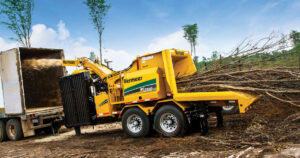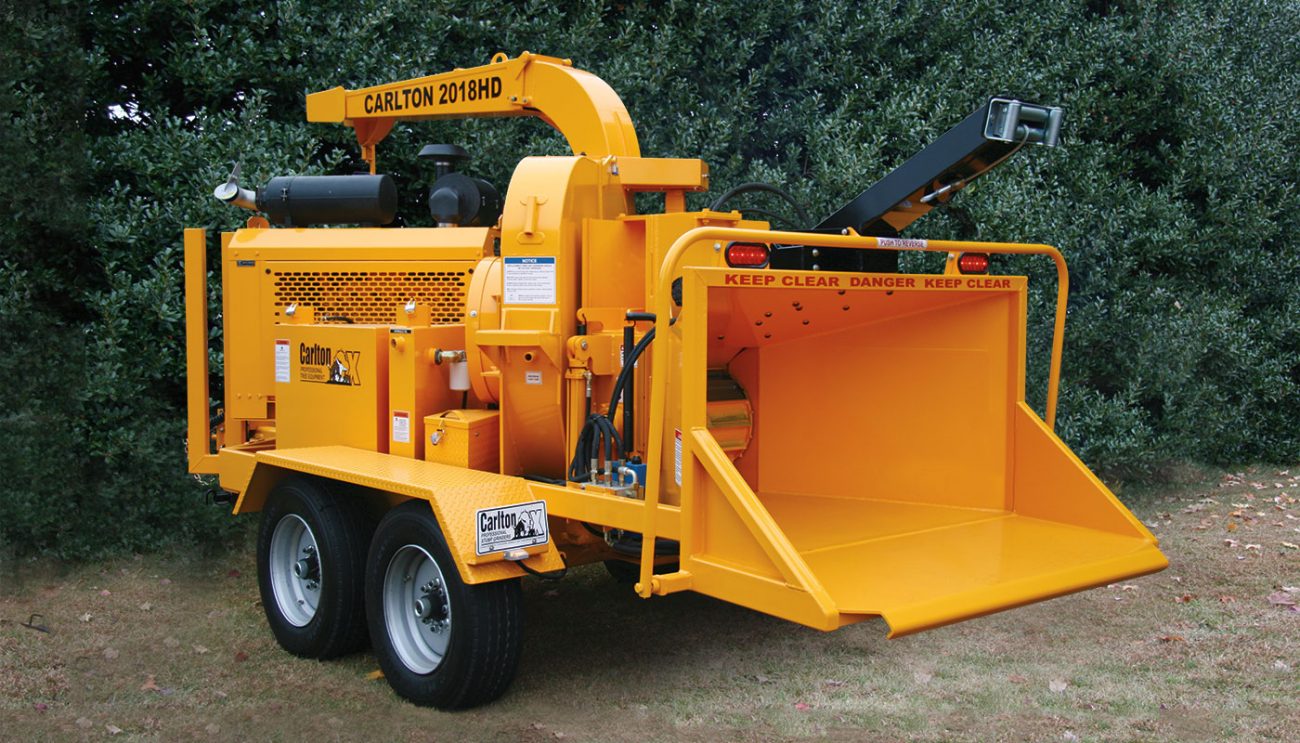Chippers, also known as wood chippers or tree chippers, are powerful machines designed to reduce large pieces of wood into smaller, more manageable forms such as wood chips or mulch. These devices are essential in various industries, including landscaping, forestry, and agriculture, due to their efficiency in handling large volumes of wood waste. This article delves into the uses, types, and benefits of chippers, offering a comprehensive understanding of these versatile tools.
Uses of Chippers
The primary function of a chipper is to process wood waste, but their applications extend far beyond this basic task. Here are some common uses:
- Landscaping and Gardening: In residential and commercial landscaping, chippers help manage tree branches, leaves, and other organic debris. The resulting wood chips can be used as mulch, which aids in soil moisture retention, weed suppression, and aesthetic enhancement of garden beds.
- Forestry and Logging: In the forestry industry, chippers play a crucial role in processing tree limbs and tops that are not suitable for lumber. This helps in clearing logging sites and converting waste into usable products such as wood chips for pulp mills or biomass fuel.
- Agriculture: Farmers utilize chippers to manage orchard prunings and other woody agricultural waste. The chips produced can be used for composting, providing a sustainable way to recycle nutrients back into the soil.
- Municipal and Urban Maintenance: Cities and towns use chippers to handle tree trimmings, storm debris, and other green waste. This helps in maintaining clean and safe public spaces while reducing landfill usage.

Types of Chippers
Chippers come in various types, each designed to handle specific tasks and volumes of wood. Understanding these types can help in selecting the right machine for a particular job.
- Drum Chippers: These chippers feature a large, rotating drum with blades attached to it. As the drum spins, it chips the wood fed into the machine. Drum chippers are known for their high capacity and efficiency, making them suitable for large-scale operations such as commercial forestry and logging.
- Disc Chippers: Disc chippers have a rotating disc with blades mounted on it. The wood is fed into the disc, which slices it into chips. These machines are often used in pulp mills and sawmills due to their ability to produce uniform wood chips that are ideal for paper production.
- Screw Chippers: Also known as auger chippers, these use a large screw mechanism to grind the wood into chips. Screw chippers are quieter and produce less vibration compared to drum and disc chippers, making them suitable for residential and small-scale applications.
- Brush Chippers: These are specifically designed to handle smaller branches and brush. They typically use a drum or disc mechanism and are widely used by landscaping companies and municipal maintenance crews.
Benefits of Chippers
The use of chippers offers numerous benefits, both environmental and economic.
- Waste Reduction: Chippers significantly reduce the volume of wood waste, making it easier to transport and dispose of. This is particularly important in urban areas where space for waste disposal is limited.
- Resource Utilization: By converting wood waste into useful products like mulch and biomass fuel, chippers promote the efficient use of natural resources. This supports sustainable practices in industries such as agriculture, landscaping, and forestry.
- Soil Health: The mulch produced by chippers can improve soil health by retaining moisture, suppressing weeds, and adding organic matter to the soil. This is beneficial for gardens, farms, and reforestation projects.
- Economic Savings: Utilizing chippers can lead to significant cost savings. For example, landscaping companies can reduce disposal fees by chipping their own waste, and farmers can save on fertilizer costs by using wood chips as compost.
- Environmental Benefits: Chippers help reduce the amount of wood waste that ends up in landfills, thus lowering methane emissions from decomposing organic matter. Additionally, using wood chips as a renewable energy source can help reduce reliance on fossil fuels.
- Versatility: Chippers are versatile machines capable of handling a wide range of materials, from small twigs to large branches. This makes them valuable tools for various industries and applications.
Conclusion
Chippers are indispensable machines that play a crucial role in managing wood waste across multiple industries. Their ability to transform bulky, unmanageable wood into useful products not only aids in waste reduction but also promotes sustainable practices. Whether in landscaping, forestry, agriculture, or municipal maintenance, chippers offer numerous benefits, including economic savings, environmental protection, and improved soil health. Understanding the different types of chippers and their specific uses can help in selecting the right machine for the job, ensuring efficient and effective wood waste management.




